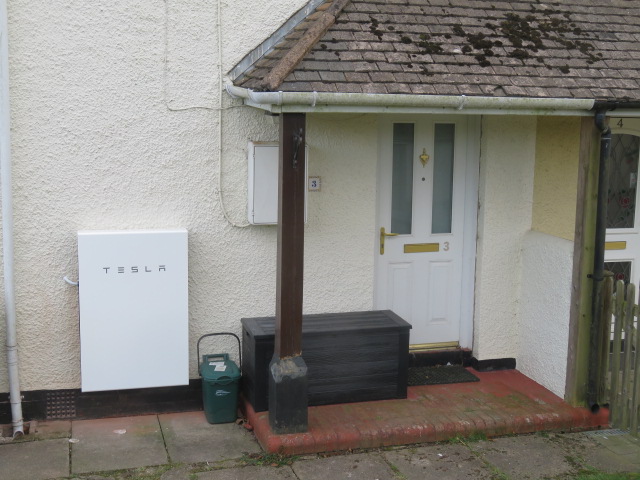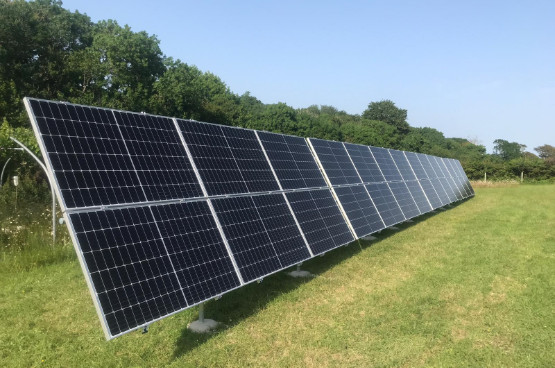SunGift is a strong proponent of energy storage both for its environmental and financial benefits. This technology can make the biggest impact, however, for poorer households struggling with their energy bills.
We recently collaborated with the fuel poverty charity National Energy Action (NEA) and North Devon Homes (NDH) on a project that aimed to reduce fuel bills in Devon.
The rural homes that took part in the project are off the gas grid and heated by traditional electric storage heating using Economy 7 electricity tariffs (this is an energy plan that allows the consumer to pay a cheaper rate for their electricity for 7 hours during the night). Such households have higher heating costs and high daytime electricity bills. It was therefore important to bring these costs down.
How did we help reduce energy bills?
It was proposed to install 8 Tesla Powerwall 2 batteries in these households. The batteries charge only from off-peak electricity (during the night) and discharge this cheaper electricity when it is needed during the day, reducing energy bills.
The Technical Innovation Fund (TIF), administered by NEA, funded the battery installation. TIF is part of a wider £26.2 million Health and Innovation Programme (HIP) that aims to bring affordable warmth to over 6,500 fuel poor households in Great Britain through the installation, monitoring and evaluation of new and innovative technologies.
What made this particular project special is that we installed the batteries in houses that didn’t have solar PV, widening the range of eligible homes. This was also the first project of its type within the UK that used large capacity Tesla batteries, and was developed before the batteries were even available with the functionality of off-peak charging.
The large 13.5 kWh capacity of the Tesla Powerwall 2 is generally sufficient to supply most household’s electricity needs throughout the day, and its maximum output of 5kW ensures that the majority of appliances can be fully powered by the battery.
Energy savings
The installations took place between 01/18 – 02/18 and were fitted with monitoring equipment to analyse the savings being made. During May these households were self-powered, on average, for 85% of peak time, saving an average of £33.70. With this initial data we can forecast that these households are likely to save roughly £300 a year on their energy bills.
What people are saying
Dr Paul Rogers, the Technical Project Development Co-ordinator at NEA, said: “These were the first Powerwall 2 batteries in the UK to run off grid charging with no solar. They were part of the soft rollout of this feature for the Tesla app. We are delighted with the way the project has progressed and the way it is enabling residents to cut their electricity bills.”
Marc Rostock, Director of Neighbourhoods for North Devon Homes, said: “We felt very strongly that this was the sort of project that we should get involved with to support our customers. The thing that attracted us to it the most was the way that it was looking to pass across cost savings to customers. If you take off-peak tariff energy, store it and make it available to use at a time when the customer wants to use it, there is inevitably a saving. It works for customers, it works for the environment and it works for the organisations.”
Richard, a resident who took part in the project, said: “The battery has been working in the background quietly and efficiently, and I haven’t even noticed its presence. One thing I have noticed though is that the Tesla is actually saving me around £1.00 a day on average. This may not seem like a lot of money to most people, but when you have to watch everything you spend then it becomes a big deal. If this system could be rolled out to more families who struggle with energy bills I would be very happy to give it my full support.”

 Solar PV Contractor of the Year 2024
Solar PV Contractor of the Year 2024
